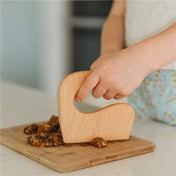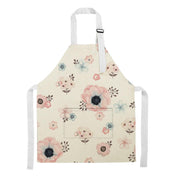What is Sensory Play and why should our children be engaging in it?
You may have already heard of sensory play, but don’t really know how it relates to childhood development or more importantly, how you can engage in this kind of play with your own child?
Sensory play is an activity that is designed to heighten your child’s senses; taste, touch, sight, smell, balance, movement and hearing. This can be achieved in any number of ways, but there is no denying that even the most basic sensory play activities can have a significant positive impact on your child’s development.
Sensory play is an activity that is designed to heighten your child’s senses; taste, touch, sight, smell, balance, movement and hearing. This can be achieved in any number of ways, but there is no denying that even the most basic sensory play activities can have a significant positive impact on your child’s development.
Jean Piaget, a child psychologist and one of the first theorists of sensory play, suggests that children retain information best through this kind of play. He argued that through ‘play’ we could enhance the child’s brain development. This theory is further substantiated by a wealth of research showing that sensory play specifically enhances cognitive development, language skills, memory skills, problem solving skills and helps to foster your child’s imagination and creativity.
So, whether you’re trying to build fine or gross motor skills, or if you’re just looking for a fun activity to share with your little one read on, because sensory play is your answer!
Enhancing your toddlers motor skills.
Children develop their fine motor skills through learning how to squish, pinch, lift, drop, mix or sort smaller objects. These types of activities challenge your child’s fine motor skills and hand eye coordination through engaging and enjoyable play. Encourage your children to get their hands dirty, to explore different textures and patterns, to play with dirt and play doh, to bake and to wash the dishes afterwards. In doing so, you’ll be building essential life skills that will also enhance your toddlers sense of well being.
If you are looking for play-based learning that will help your child explore through their senses, sensory play is the right fit for your family. Engaging activities will help your little one grow, watch them play, create and discover the world around them, right before your eyes.
We have a huge range of sensory activities for all age groups, so start exploring the world with your little one, today.
Cognitive Development
Engaging in cause and effect play can help to improve the cognitive development of your toddler. Focus on activities that highlight hot and cold textures, smooth or rough textures and touch and feel books with a variety of different patterns and textures.
Cognitive development is also fostered through problem-solving and thinking in a rational manner. Understanding why things happen, like actions and consequences, can also be achieved through this sort of play. For example, if a child scrunches up a piece of paper, not only will the texture change, but the shape of the object will also change. Children learn that the action - scrunching - alters the end result – the shape. It’s this critical thinking that is really enriching to a child’s development and children’s minds.
Activities that can help improve cognitive development can be sorting colours and shapes, making patterns with their hands with paint, playing “hide and seek” with objects in sand or going on treasure hunts (identifying objects)
Cognitive development is also fostered through problem-solving and thinking in a rational manner. Understanding why things happen, like actions and consequences, can also be achieved through this sort of play. For example, if a child scrunches up a piece of paper, not only will the texture change, but the shape of the object will also change. Children learn that the action - scrunching - alters the end result – the shape. It’s this critical thinking that is really enriching to a child’s development and children’s minds.
Activities that can help improve cognitive development can be sorting colours and shapes, making patterns with their hands with paint, playing “hide and seek” with objects in sand or going on treasure hunts (identifying objects)
Helps Calm Children And Relieve Stress
Sensory overload can be really common in toddlers and young children, even those without sensory processing disorders. Sensory play can help children who become overwhelmed, to relax an over-stimulated mind.
Children are unique and individual and you may find that whilst one child responds well to a particular sensory activity, he or she may respond poorly to another. Watch how your toddler responds, alter your activities to suit, and if your child seems to respond negatively to one thing, try another and another until you find an activity that they love.
Children are unique and individual and you may find that whilst one child responds well to a particular sensory activity, he or she may respond poorly to another. Watch how your toddler responds, alter your activities to suit, and if your child seems to respond negatively to one thing, try another and another until you find an activity that they love.
If you are looking for play-based learning that will help your child explore through their senses, sensory play is the right fit for your family. Engaging activities will help your little one grow, watch them play, create and discover the world around them, right before your eyes.
We have a huge range of sensory activities for all age groups, so start exploring the world with your little one, today.




